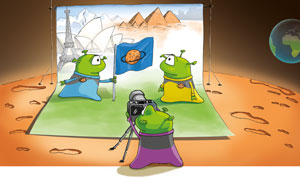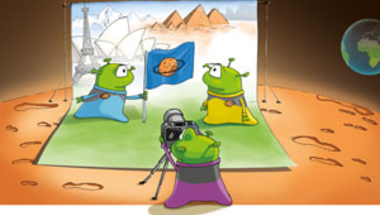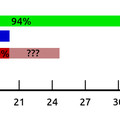 Ezzel a címmel jelent meg egy jó kis cikk Ted Goertzel tollából még valamikor a nyár elején az EMBO Reportsban. Akkor írni akartam róla, de aztán kiment a fejemből, most azonban takarítás közben szerencsére a kezembe került.
Ezzel a címmel jelent meg egy jó kis cikk Ted Goertzel tollából még valamikor a nyár elején az EMBO Reportsban. Akkor írni akartam róla, de aztán kiment a fejemből, most azonban takarítás közben szerencsére a kezembe került.
Egy kis ízelítő a cikkből:
"The logic of the conspiracy meme is to question everything the ‘establishment’—be it government or scientists—says or does, even on the most hypothetical and speculative grounds, and to demand immediate, comprehensive and definitive answers to all questions. A failure to give convincing answers is then used as proof of conspiratorial deception. Meanwhile, conspiracy theorists offer their own alternative theories with the flimsiest of evidence, challenging the authorities to prove them wrong. [...]
 Ezzel a címmel jelent meg egy jó kis cikk Ted Goertzel tollából még valamikor a nyár elején az EMBO Reportsban. Akkor írni akartam róla, de aztán kiment a fejemből, most azonban takarítás közben szerencsére a kezembe került.
Ezzel a címmel jelent meg egy jó kis cikk Ted Goertzel tollából még valamikor a nyár elején az EMBO Reportsban. Akkor írni akartam róla, de aztán kiment a fejemből, most azonban takarítás közben szerencsére a kezembe került.
Egy kis ízelítő a cikkből:
"The logic of the conspiracy meme is to question everything the ‘establishment’—be it government or scientists—says or does, even on the most hypothetical and speculative grounds, and to demand immediate, comprehensive and definitive answers to all questions. A failure to give convincing answers is then used as proof of conspiratorial deception. Meanwhile, conspiracy theorists offer their own alternative theories with the flimsiest of evidence, challenging the authorities to prove them wrong. [...]
Many of these theories are clearly absurd, but some have a veneer of possibility. How can we distinguish between the amusing eccentrics, the honestly misguided, the avaricious litigants and the serious sceptics questioning a premature consensus? No private individual has the time or the expertise to examine the original research literature on each topic, so it is important to have some guidelines for deciding which theories are plausible enough to merit serious examination.
One valuable guideline is to look for cascade logic in conspiracy arguments (Susstein & Vermeule, 2008). This occurs when defenders of one conspiracy theory find it necessary to implicate more and more people whose failure to discover or reveal the conspiracy can only be explained by their alleged complicity. Another guideline is to look for exaggerated claims about the power of the conspirators: claims that are needed to explain how they were able to intimidate so many people and cover their tracks so well. The more vast and more powerful the alleged conspiracy, the less likely that it could have remained undiscovered. [...]
Even if a conspiracy theory is implausible, it can be used as a rhetorical device to appeal to the emotions of a significant public. The conspiracy meme flourishes best in politics, religion and journalism, in which practitioners can succeed by attracting followers from the general public. These practitioners might actually believe the conspiracy theory, or they might simply use it to win public support. [...]
Conspiracy theories are dangerous when the meme is used to discredit scientific evidence in a public forum or in a legal proceeding. The conspiracy meme is part of the standard repertoire of memes used by lawyers to discredit evidence offered by ‘experts’ of all kinds. Lawyers focus on the motivations of the experts, on who hired them, what they are being paid for their testimony and so on. They also seek out an ‘expert’ who will testify on their side, implying that expertise is for sale to the highest bidder and that opinion is divided on the issue in question."
Szó esik aztán ebben a kontextusban Wakefield MMR-hisztijéről, Pusztai GMO-s hírveréséről, Duesberg HIV-AIDS kapcsolatot megkérdőjelező, hihetetlen veszélyes "elméletérőll", Pauling C-vitamin obszessziójáról és persze a klímaváltozással szemben "szkeptikusak" népes és befolyásos klubbjáról.
Goertzel T (2010) Conspiracy theories in science. EMBO Rep 11(7): 493-499.







